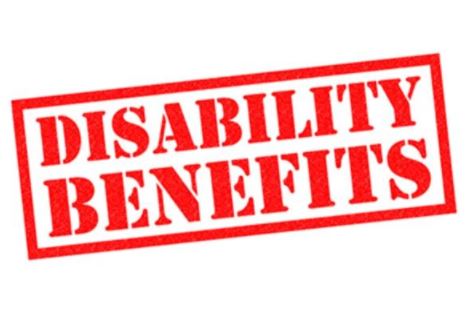| Toll Free : 1844 495 7333(injury hotline- new cases only) | |
| Text a Personal Injury Lawyer 24/7 and get instant help.TM (416 931 5015) | |
| Head Office : 905 495 7333 |
My Long-Term Disability Claim was Denied: What Now?
October 22, 2020First of all, we would like to reassure you that denial of your long term disability claim is not at all uncommon. Statistics seem to suggest a higher likelihood of your claim getting rejected than approved, and denial rates are higher among private insurance companies.
We understand the importance of disability claims and how they work to make life easier for those who might struggle otherwise. We have experience dealing with thousands of cases related to disabilities or, more specifically, rejection of disability claims, which puts us in a position to elucidate the steps you need to take if your claim has been rejected. Our long term disability lawyers in Brampton have compiled a comprehensive guide on this topic. We are always available for further discussion if you wish to discuss your legal representation.
The nature of these claims is incredibly personal, and we treat each case as such. Keeping that in mind, despite the list below, we remind you that no one size fits all in these cases and so you should contact us for any questions you have. Legal representation is your right, and as eminent counsels, we work these cases on a contingency basis to ensure that we only get paid if you get what you deserve.

Without further ado, the things you will need to do are-
- Understand that generally, there are two forms of appeal that you can follow up through. You can choose to appeal the decision internally, which is through the organization that has denied your claim, essentially asking them to reconsider and change their minds. Or you can choose external methods such as litigation in courts, tribunals, or even in arbitration. We want to remind you of the statute of limitations that may apply to your appeal, and usually, you can only appeal within two years of rejection.
Internal appeals take longer and are usually less successful. It is recommended not to keep court appeals and litigation as a last resort.
- Once this is done, you need to read through your denial letter. It is the most important part of the appeal, and most likely, the denial letter states the reason behind your disability claim not being approved. Reasons can range from lack of severity of the disability to insufficient proof to incorrect papers. Once the reason has been identified, the process can be started. The letter also notes the date of rejection, which can be held as the day to calculate the statute of limitations if applicable.
- Taking the denial letter as a reference, you need to gather all required evidence. The reasons mentioned in the denial letter are important. Gather all your papers, insurance, and all other proof of your long term disability. Reports from experts backing up your claim will be of immense help. We recommend reports from medical, vocational as well as functional capacity experts.
- Arrange your employment-related papers, as you will need to prove that your employment has been affected by your disability or that your employer is aware of your special requirements if any. Additionally, employment history and leaves or time took off on disability grounds and any benefits received from your employer help strengthen your case. Testimonials from your employers or coworkers about the effect of your disability on your work will also help.
- A good, strong appeal letter will be required alongside the papers, as mentioned earlier. This should ideally be drafted by a qualified lawyer and must prove your disability’s long-term nature by clarifying its impact on essential parts of your life, such as mobility and livelihood. It is recommended to explain your diagnosis’s nature and the intricacies and back it up with the opinions of a medical expert.
- Include all your reports, treatments, relevant appointments, and prescriptions to Maintain clarity and transparency about the degree of severity of your disability and the extent of its effect on your regular life. You need to be convincing about your claim’s urgency and importance and highlight that the rejection was incorrect.
- While we will try our best to get your appeal through, it is wise to apply for alternate long term disability claims from other providers. For instance, if your state or city council has a separate disability claims plan, or even if a private body, such as your insurance or your employer is offering benefits, look into availing them. Our long term disability lawyers in Brampton will gladly look through your claim and advise you on the different options available.
- Do not hesitate to go for court litigation instead of internally appealing directly. It is likely that a deadline for appeals is mentioned above, and internal appeals are not transparent and favorable to the claimant. Our long term disability lawyers in Brampton will advise you on re-appealing processes if required in accordance with the guidelines for any limitations on subsequent appeals. A lawsuit might be quicker and give you the result you expect.

Although these are the general steps you must take, getting personalized advice based on your case from our long term disability lawyers in Brampton will best reflect your interests and maximize your chances of getting your appeal approved. Further, we help with strictly the court processes and obtain necessary expert advice, recommending which questions to ask your experts, ensuring completion of your claims file and that all the gaps in your appeal are filled, leaving no space for rejection based on the inadequacy of the information. As experienced lawyers in this challenging field, we empathize with your situation and guarantee our best efforts in securing you a positive result. As mentioned before, we do not work for our profit, and instead, we will gladly represent you on a contingency basis and give you free consultations if you require to see whether you fit well with our lawyers.
My Long-Term Disability Claim was Denied: What Now?
October 22, 2020First of all, we would like to reassure you that denial of your long term disability claim is not at all uncommon. Statistics seem to suggest a higher likelihood of your claim getting rejected than approved, and denial rates are higher among private insurance companies.
We understand the importance of disability claims and how they work to make life easier for those who might struggle otherwise. We have experience dealing with thousands of cases related to disabilities or, more specifically, rejection of disability claims, which puts us in a position to elucidate the steps you need to take if your claim has been rejected. Our long term disability lawyers in Brampton have compiled a comprehensive guide on this topic. We are always available for further discussion if you wish to discuss your legal representation.
The nature of these claims is incredibly personal, and we treat each case as such. Keeping that in mind, despite the list below, we remind you that no one size fits all in these cases and so you should contact us for any questions you have. Legal representation is your right, and as eminent counsels, we work these cases on a contingency basis to ensure that we only get paid if you get what you deserve.

Without further ado, the things you will need to do are-
- Understand that generally, there are two forms of appeal that you can follow up through. You can choose to appeal the decision internally, which is through the organization that has denied your claim, essentially asking them to reconsider and change their minds. Or you can choose external methods such as litigation in courts, tribunals, or even in arbitration. We want to remind you of the statute of limitations that may apply to your appeal, and usually, you can only appeal within two years of rejection.
Internal appeals take longer and are usually less successful. It is recommended not to keep court appeals and litigation as a last resort.
- Once this is done, you need to read through your denial letter. It is the most important part of the appeal, and most likely, the denial letter states the reason behind your disability claim not being approved. Reasons can range from lack of severity of the disability to insufficient proof to incorrect papers. Once the reason has been identified, the process can be started. The letter also notes the date of rejection, which can be held as the day to calculate the statute of limitations if applicable.
- Taking the denial letter as a reference, you need to gather all required evidence. The reasons mentioned in the denial letter are important. Gather all your papers, insurance, and all other proof of your long term disability. Reports from experts backing up your claim will be of immense help. We recommend reports from medical, vocational as well as functional capacity experts.
- Arrange your employment-related papers, as you will need to prove that your employment has been affected by your disability or that your employer is aware of your special requirements if any. Additionally, employment history and leaves or time took off on disability grounds and any benefits received from your employer help strengthen your case. Testimonials from your employers or coworkers about the effect of your disability on your work will also help.
- A good, strong appeal letter will be required alongside the papers, as mentioned earlier. This should ideally be drafted by a qualified lawyer and must prove your disability’s long-term nature by clarifying its impact on essential parts of your life, such as mobility and livelihood. It is recommended to explain your diagnosis’s nature and the intricacies and back it up with the opinions of a medical expert.
- Include all your reports, treatments, relevant appointments, and prescriptions to Maintain clarity and transparency about the degree of severity of your disability and the extent of its effect on your regular life. You need to be convincing about your claim’s urgency and importance and highlight that the rejection was incorrect.
- While we will try our best to get your appeal through, it is wise to apply for alternate long term disability claims from other providers. For instance, if your state or city council has a separate disability claims plan, or even if a private body, such as your insurance or your employer is offering benefits, look into availing them. Our long term disability lawyers in Brampton will gladly look through your claim and advise you on the different options available.
- Do not hesitate to go for court litigation instead of internally appealing directly. It is likely that a deadline for appeals is mentioned above, and internal appeals are not transparent and favorable to the claimant. Our long term disability lawyers in Brampton will advise you on re-appealing processes if required in accordance with the guidelines for any limitations on subsequent appeals. A lawsuit might be quicker and give you the result you expect.

Although these are the general steps you must take, getting personalized advice based on your case from our long term disability lawyers in Brampton will best reflect your interests and maximize your chances of getting your appeal approved. Further, we help with strictly the court processes and obtain necessary expert advice, recommending which questions to ask your experts, ensuring completion of your claims file and that all the gaps in your appeal are filled, leaving no space for rejection based on the inadequacy of the information. As experienced lawyers in this challenging field, we empathize with your situation and guarantee our best efforts in securing you a positive result. As mentioned before, we do not work for our profit, and instead, we will gladly represent you on a contingency basis and give you free consultations if you require to see whether you fit well with our lawyers.








